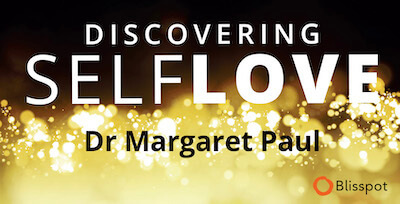There is no better time than now to practice Inner Bonding in numerous areas of your life.
Emotionally and Spiritually
Please be very kind and gentle with yourself. It’s very important to not allow your wounded self to scare you, because our main line of defense against the Coronavirus is our immune system, and stress erodes the immune system.
Start by acknowledging to yourself that this is a very challenging time. Imagine that your intention is to soothe a scared child, rather than further scaring the child. This is the time to stay open to your higher guidance and bring comfort and compassion to your inner child, especially if you feel anxious. It’s also a time to reach out to friends with whom you can connect – on the phone, or via Skype or Zoom. While it’s important to stay home and not be around people, it’s also important to stay connected with the people whom you can support and who can support you, especially if you are alone.
If you stay connected with your higher self, you can be guided regarding what is in your highest good. I’m reminded of one of my favorite books, “Man’s Search For Meaning,” by Dr. Viktor Frankl, who was able to stay alive in a concentration camp by listening to his inner knowing. This is a very important time to listen to your inner knowing regarding what is safe for you and what isn’t.

Physically
There are two major areas where you need to take physical responsibility. Obviously, one is making sure that you keep washing your hands; go out as little as possible; wear gloves when going to the market if there is contamination in your area, or order essentials to be delivered; avoid physical social contact; and get enough exercise.
The other area is actually the underlying cause of all of this, and this is about what you need to do for your immune system.
Even if you are stuck at home, try to spend time outdoors. Nature and sunshine have antiviral qualities that can support your health.
A strong immune system can fight off viruses, but a major underlying cause of a dysfunctional immune system is the food you eat. If you have been eating fast food, processed food, sugar, and factory-farmed food, please consider trying your best to eat real food – the food your great-great grandparents ate.
Just this morning I asked some of the young people who help us on our ranch, “Why do you think indigenous people rarely get cancer, heart disease, diabetes, auto-immune disease, or viruses?” None of them knew the answer.
The answer, of course, is that they continue to eat their traditional diet – food that hasn’t been sprayed with pesticides and grown on devitalized soils, meats that haven’t been contaminated with hormones, and food that has not been altered with GMOs.
I recommend to all of you to read, “Food Fix,” by Mark Hyman, M.D.
In this book, you will see that our dysfunctional and contaminated food system is one of the greatest underlying causes of our current planetary problems – including climate change, the economic problems from the overwhelmed health care system, and the huge loss of both plants and animals that have gone extinct due to our food system. In fact, humanity itself could be in danger of becoming extinct if we don’t start to heal our food system.
The good news is that it is possible to improve your immune system, and it doesn’t have to take a long time. Why not start right now? Your gut is the seat of your immune system. Sugar, processed foods, industrial seed oils (such as safflower, sunflower, canola, soy, corn, etc.), processed dairy, and factory-farmed foods erode your immune system. If you keep in mind the way people ate a couple of hundred years ago, and eat accordingly, you will be showing up as a loving adult to physically take care of your inner child.








